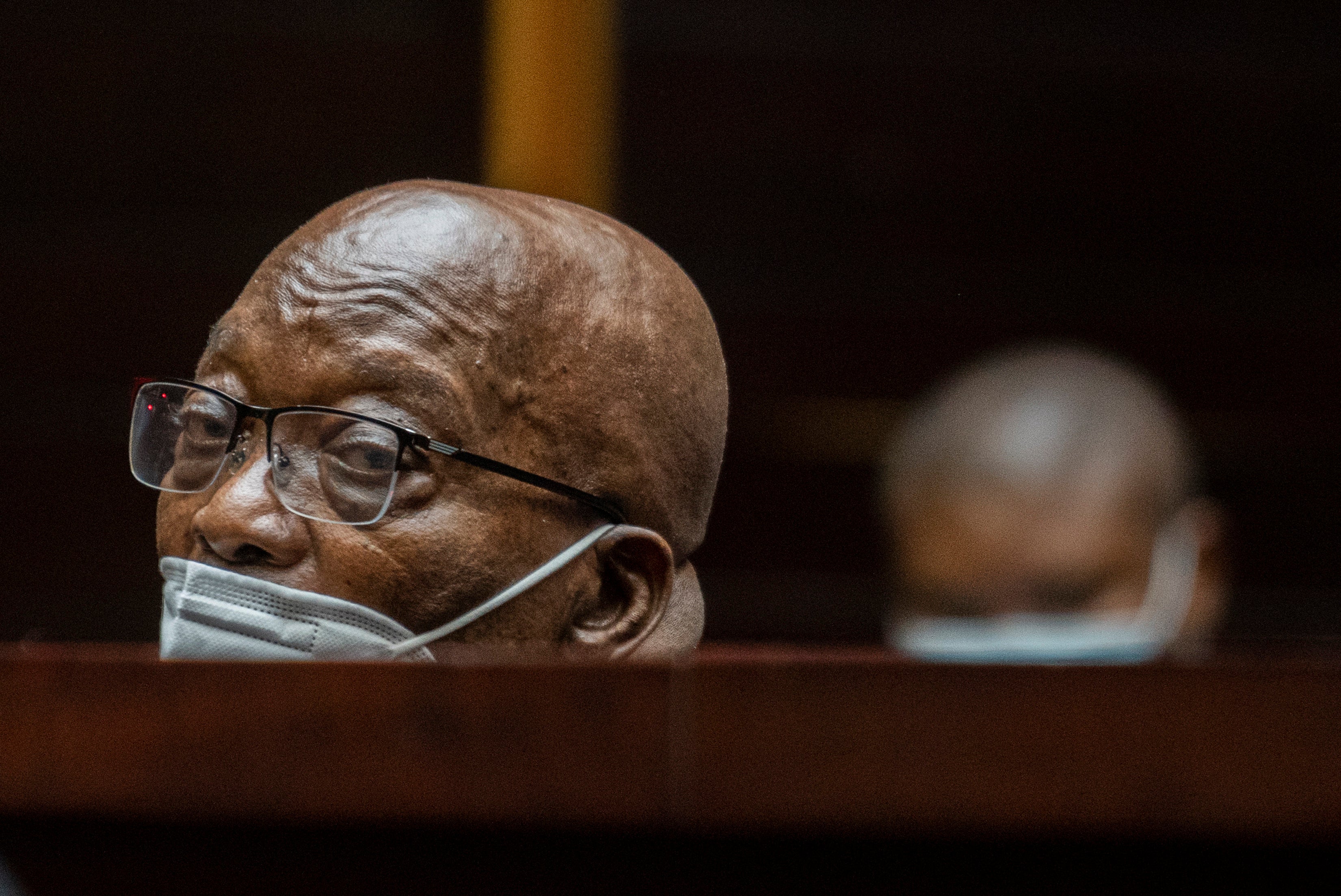South African court orders ex-president Zuma back to prison
A South African court has ordered that former President Jacob Zuma should go back to prison after withdrawing the medical parole given to him earlier this year

Your support helps us to tell the story
From reproductive rights to climate change to Big Tech, The Independent is on the ground when the story is developing. Whether it's investigating the financials of Elon Musk's pro-Trump PAC or producing our latest documentary, 'The A Word', which shines a light on the American women fighting for reproductive rights, we know how important it is to parse out the facts from the messaging.
At such a critical moment in US history, we need reporters on the ground. Your donation allows us to keep sending journalists to speak to both sides of the story.
The Independent is trusted by Americans across the entire political spectrum. And unlike many other quality news outlets, we choose not to lock Americans out of our reporting and analysis with paywalls. We believe quality journalism should be available to everyone, paid for by those who can afford it.
Your support makes all the difference.
A South African court has ordered that former President Jacob Zuma should go back to prison after withdrawing the medical parole given to him earlier this year.
Zuma was released from prison in September after serving about two months of his 15-month sentence for defying a Constitutional Court order that he should testify before a state commission investigating allegations of corruption when he was president from 2009 to 2018.
On Wednesday the Gauteng High Court in Pretoria ruled that the medical parole granted to Zuma was illegal as it went against the recommendation of the medical parole board. The court ruled that Zuma should go back to prison.
According to the ruling, the time that Zuma spent outside prison should not be counted as part of the sentence imposed by the court.
The ruling is a legal blow for Zuma, who is also facing corruption charges for allegedly receiving bribes during the country’s controversial 1999 purchase of arms from French arms manufacturer Thales
Zuma’s imprisonment in July sparked protests by supporters who demanded his immediate pardon. The protests quickly descended into chaotic violence in which trucks were burned, shops and warehouses looted and burned. More than 300 people died in the country's worst violence since the end of apartheid in 1994. For more than a week the violence shook the Kwazulu-Natal and Gauteng provinces. Official statistics now estimate that the violence contributed to a 1.5% economic decline during that period.
The correctional services department will only comment after studying the judgment, department spokesman Singabakho Nxuma told The Associated Press.
Zuma's legal team is expected to appeal the decision but the Jacob Zuma Foundation has not yet spokesman Mzwanele Manyi could not be reached on Wednesday to indicate whether Zuma would appeal the ruling or would hand himself over to resume serving his sentence.